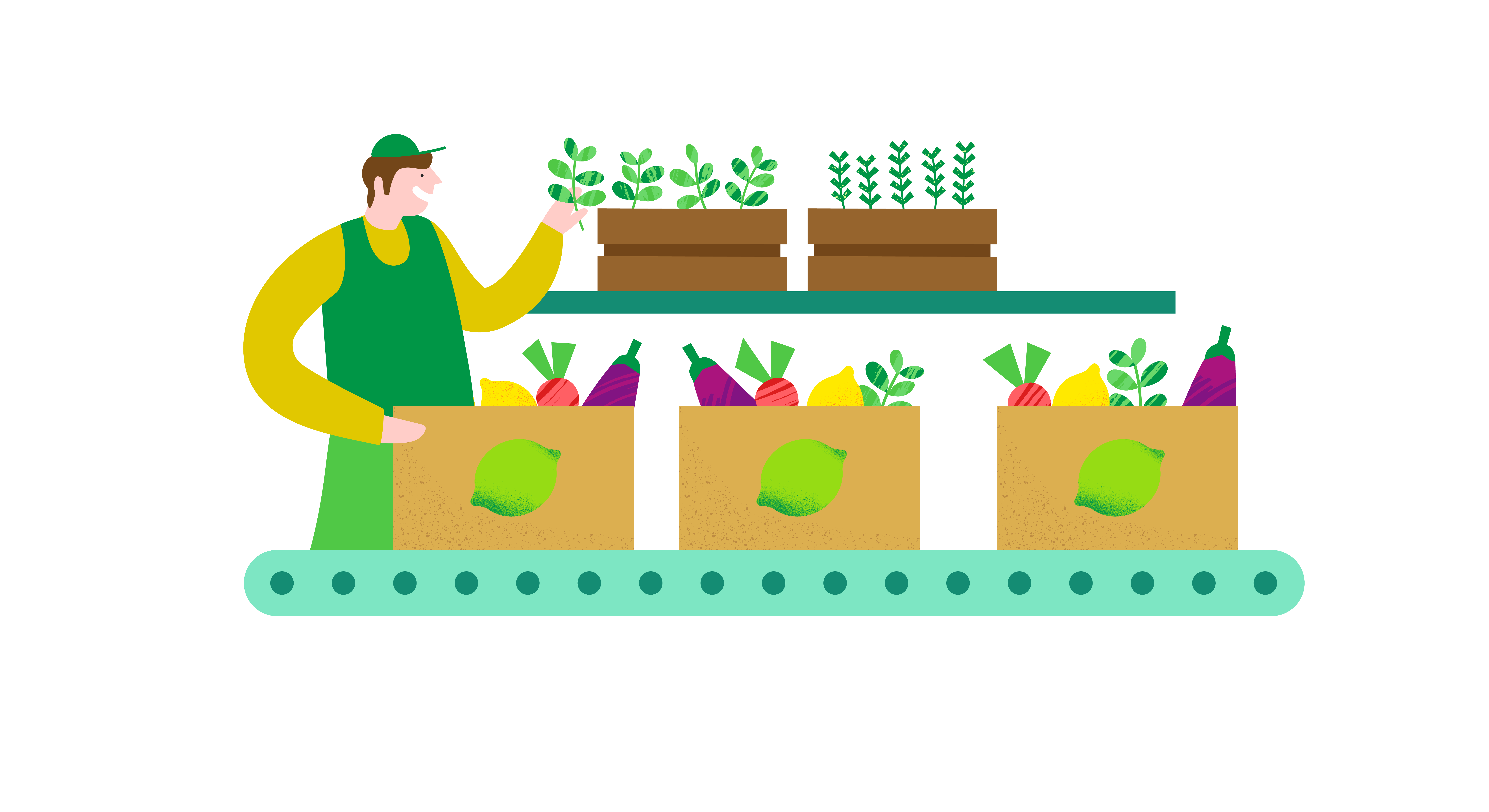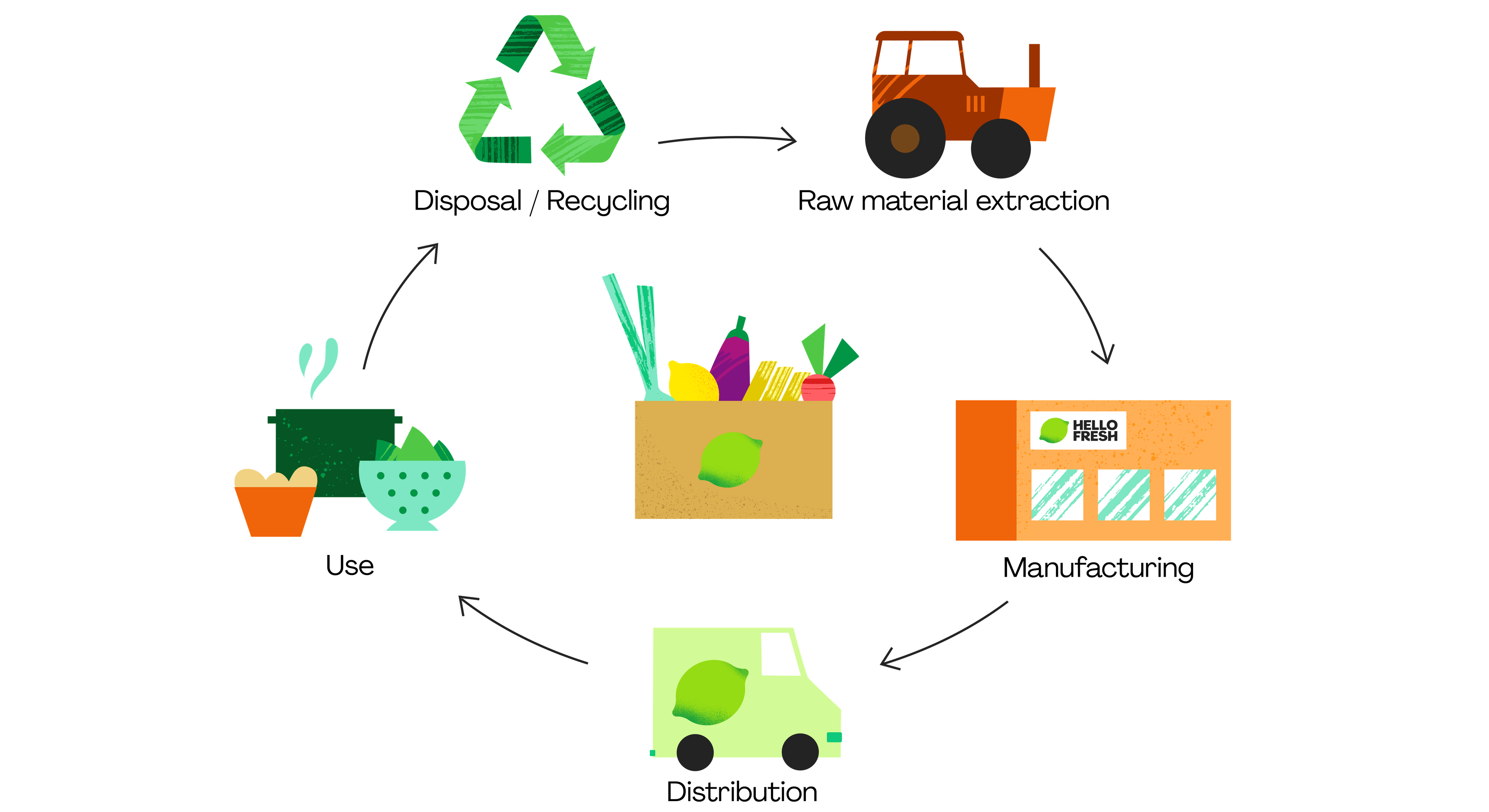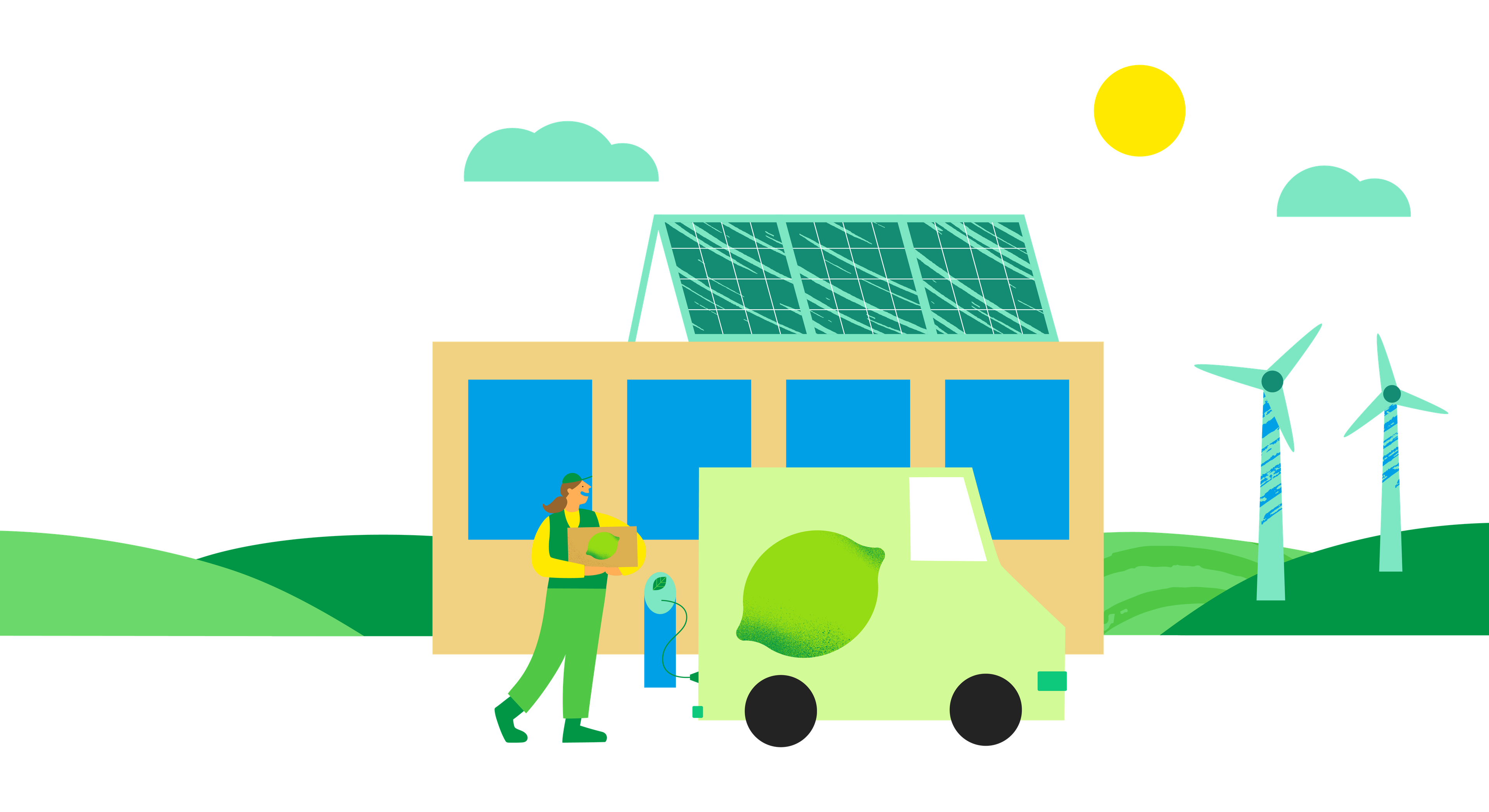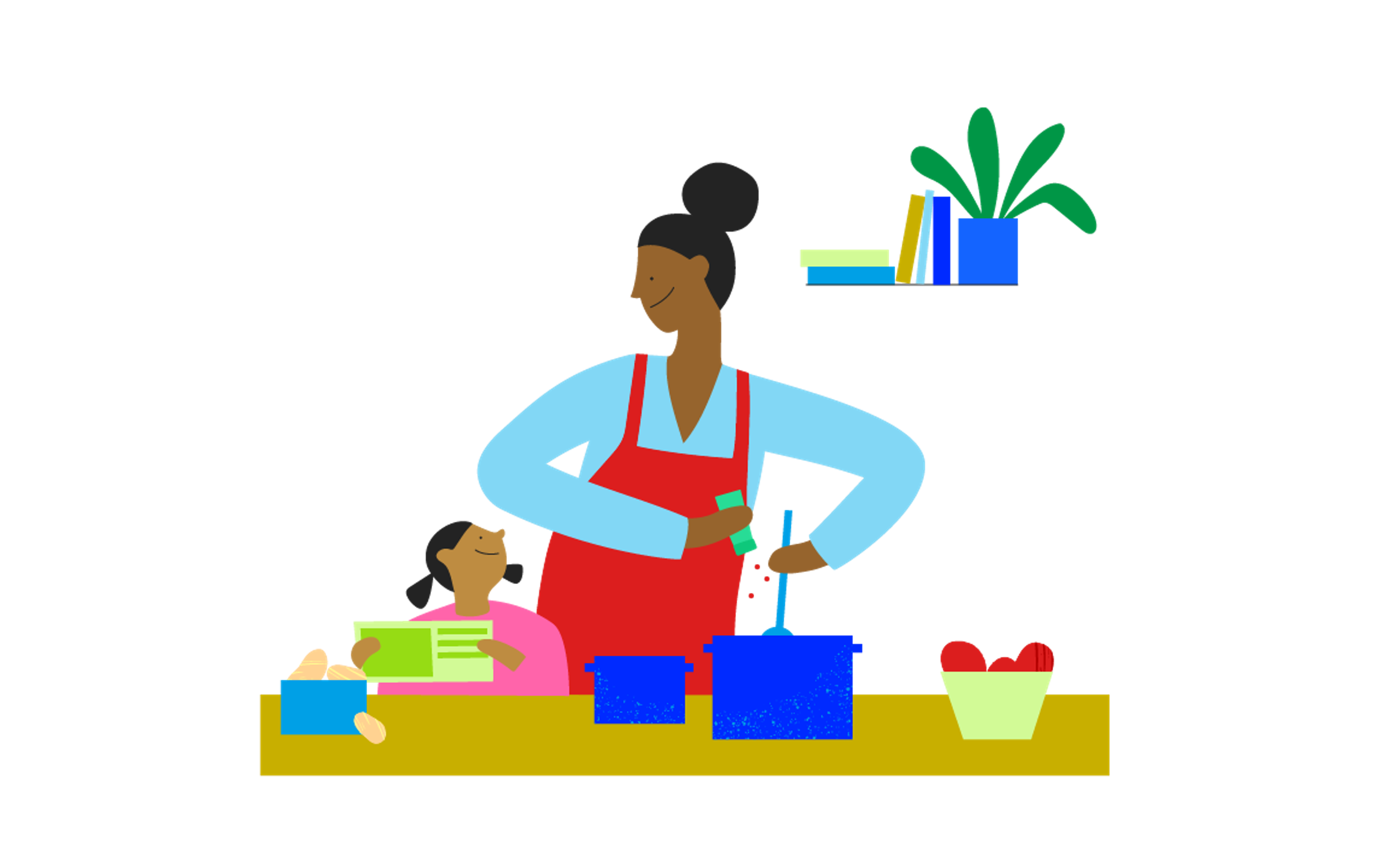11% less CO2 emissions than the supermarket
Your HelloFresh meals cause 11% less CO2 emissions than the same meals prepared with ingredients from the supermarket.
Your HelloFresh meals cause 11% less CO2 emissions than the same meals prepared with ingredients from the supermarket.

CO2-neutral delivery to your front door

Hardly any waste and a short chain
Ingredients are by far the largest contributor to CO2 emissions in our chain. That is why we do everything we can to prevent food waste. Unlike supermarkets and restaurants, we purchase the ingredients based on your order and you receive them in exactly the right quantities. We hardly have any food waste in our chain and home chefs who cook with HelloFresh waste an average of 38% less food worldwide than if they prepare dinner themselves [(Global Food Waste Study, 2020)](https:/ /cdn.hellofresh.com/gb/cms/Sustainability/Summary_GlobalFoodWasteStudy.pdf). Moreover, HelloFresh has a super short chain: we avoid extra stops on our routes and prefer to source ingredients from nearby, so that they do not take too long in transit and are fresh. to stay.

-11% CO2 than the supermarket
In this way, HelloFresh meals produce fewer emissions than comparable meals from restaurant deliveries or supermarkets, as shown by an ISO 14040-compliant life cycle assessment completed in April 2022. In the Benelux, a HelloFresh meal produces an average of 11% less CO2 emissions than a comparable meal made with ingredients from the supermarket and 3% less than a meal delivered by a restaurant.

Hardly any waste and a short chain
Ingredients are by far the largest contributor to CO2 emissions in our chain. That is why we do everything we can to prevent food waste. Unlike supermarkets and restaurants, we purchase the ingredients based on your order and you receive them in exactly the right quantities. We hardly have any food waste in our chain and home chefs who cook with HelloFresh waste an average of 38% less food worldwide than if they prepare dinner themselves [(Global Food Waste Study, 2020)](https:/ /cdn.hellofresh.com/gb/cms/Sustainability/Summary_GlobalFoodWasteStudy.pdf). Moreover, HelloFresh has a super short chain: we avoid extra stops on our routes and prefer to source ingredients from nearby, so that they do not take too long in transit and are fresh. to stay.

-11% CO2 than the supermarket
In this way, HelloFresh meals produce fewer emissions than comparable meals from restaurant deliveries or supermarkets, as shown by an ISO 14040-compliant life cycle assessment completed in April 2022. In the Benelux, a HelloFresh meal produces an average of 11% less CO2 emissions than a comparable meal made with ingredients from the supermarket and 3% less than a meal delivered by a restaurant.

What is a life cycle analysis?

What is the scope of the life cycle analysis?

How did we calculate the results?

